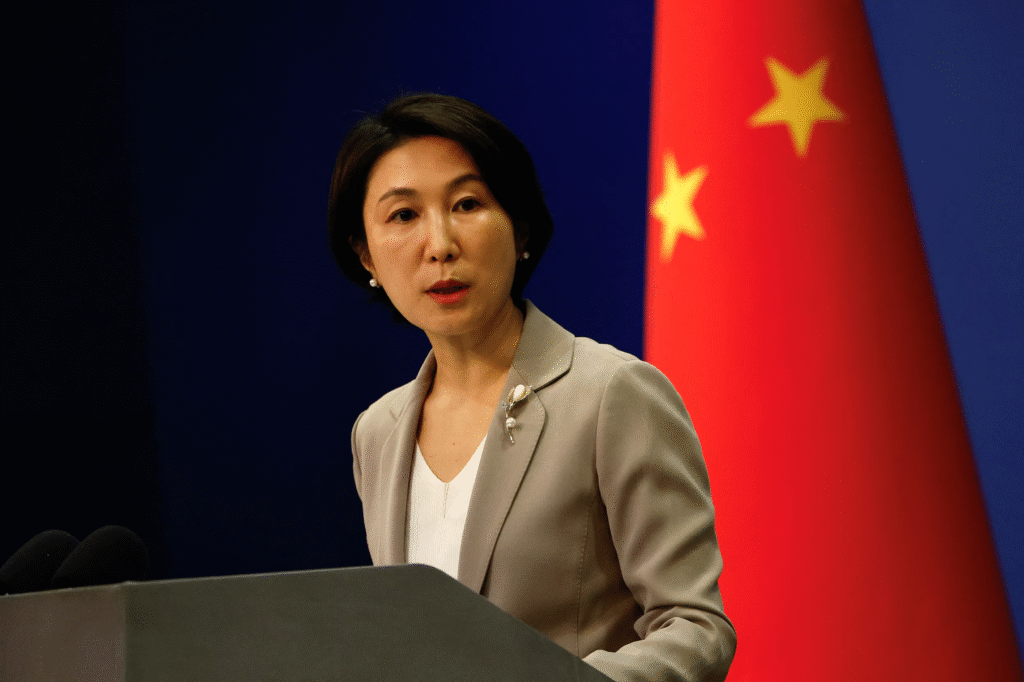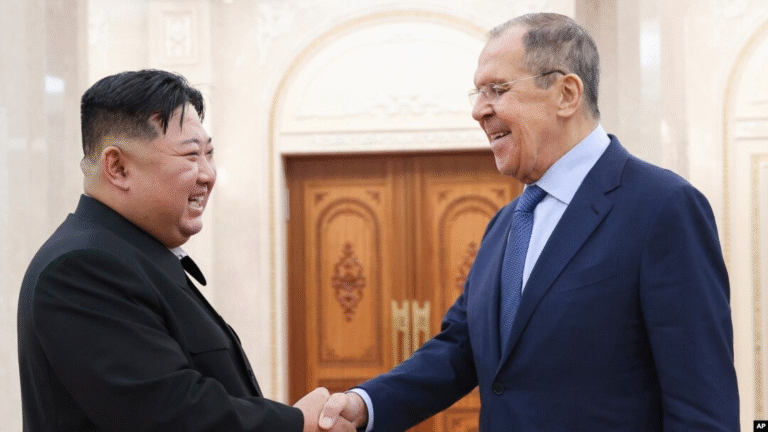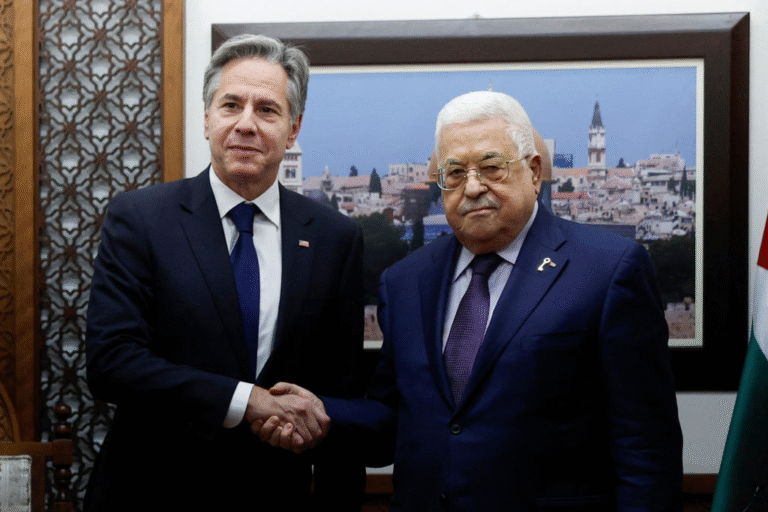
Three candidates prepare for the elections. Left to right: Hou, Ko, Lai.
Photo credit: Central European Institute of Asian Studies
Sonya King
The America-Eurasia Center
America-Taiwan Program/East Asia
From Taipei, Taiwan
https://www.eurasiacenter.org/

Taiwan presidential candidate Lai Ching-te and his running mate Hsiao Bi-khim for Vice President, after
registering for the 2024 elections; the ultimate winners of the election. Photo Credit: AFP
Air Raid Alert – False Alarm or Forewarning?
On January 9th, 2024, a blaring alarm startled Taiwan. The Department of Defense had issued two
Presidential Alerts, displayed as notifications on every cell phone: “[Air raid Alert] Missile flyover
Taiwan airspace, be aware.”1 Though this was soon rebuked as a translation error triggered by a
satellite launch from China, a clear message was sent to the Taiwanese people – there is potential
for danger.
Soon after, speculations arose around the strategic timing of the alert – just four days before the
presidential election. Some questioned whether the warning may have been intentionally released to
incite mass fear, a tactic that could skew voters to turn to candidates who presented a greater
guarantee for safeguarding the island. Though no official investigation was conducted, the air raid
alert added a great level of uncertainty to the upcoming elections.2
A Decisive Race – Three Candidates With Taiwan’s Future At Hand
Plotting for victory, the three candidates, Lai Ching-te, Hou Yu-ih, and Ko Wen-je, each utilized
promises of peace and sovereignty to emphasize their alliance with Taiwanese needs.
Lai, who represents the Democratic Progressive Party (DPP,) took a stronger stance on
safeguarding Taiwanese autonomy.3 As a public skeptic of Beijing, he remains tied to his former
pro-independence advocacy, a movement China vehemently objects.4 To the Taiwanese people,
however, he embodied the hope of autonomy, potentially magnified after the recent warning. Hou,
who was nominated by the historical Kuomintang (KMT,) advocates for a more peaceful, obliging
attitude towards China. His policy of “remaining amicable but not dependent”5 on China is
considered a safer route in combating recent advances, though this has painted him as a “soft,”
candidate who may be less capable of protecting Taiwan’s existing sovereignty.6 Lastly, Ko entered
the election as a wild card, representing his self-founded party, the Taiwanese People’s Party
(TPP.) Though only established in 2019, the TPP has generated tremendous momentum among the
younger generation of Taiwanese people who crave an alternative to Taiwan’s two-party
dominance. In terms of foreign policy, Ko vows to maintain communication with Beijing to
maintain the status-quo.7 His attitude positioned him in a strategic middle ground between Lai and
Hou – hinting at the shifting dynamics of Taiwanese politics.
A Battle of Representation – Complexities of the Taiwanese Identity
On January 13th, 13 million voters cast their ballots. The result: Lai 40%, Ho 33.4%, Ko 26.6%/.8
Lai was elected – earning the DPP presidency for the third consecutive term. While international
media celebrated Lai’s win, local reactions were far more divided. Thus, this paper aims to explore
the diverse opinions of the Taiwanese people across generational and ethnic spectrums, underlining
the multitude of perspectives within a collective identity.
Understanding the Taiwanese identity begins with recognizing its ethnic history. Today, the
population is 96.4% Han Chinese, 2.5% indigenous, and 1.1% new immigrants.9 Of the Han
Chinese majority, the two distinct ethnic subgroups are the Hokkien and Hakka, accounting for
73% and 12% respectively.10 The remaining are referred to as waishengren, or “out of state people”
– alluding to descendants of the 1.2 million Mainland soldiers and families who migrated to Taiwan
following the KMT defeat in the 1940s.11 This portion of the population, who remained greatly tied
to their Chinese heritage, are also the most loyal supporters of the KMT regime. Their viewpoints
often conflict with Hokkien people who immigrated to the island in the 1600s, a community that, to
a great extent, has deserted its Chinese origins for Taiwanese patriotism. The Hakka, however,
align themselves more intimately with the waishengren, finding solidarity in their shared
experience as minorities. This extends to indigenous communities, who have historically been
persecuted by Hokkien immigrants. To simplify Taiwan’s current ethnic-political alliance, it is
generally accepted that indigenous, Hakka, and waishengren are more supportive of the KMT,
while Hokkien people align more with the DPP.12 This leaves the question of the TPP, and the next
sphere of identity to be analyzed – age.
There is a distinct generational divide between supporters of the KMT, DPP, and TPP. Before Ko
established the TPP, the general sentiment was that the KMT represented older, Chinese-affiliated
interests while the DPP embodied younger, Taiwanese patriotism. Ko’s emergence in the political
sphere, however, greatly altered this dynamic. To many young voters, Ko was considered “a bold
reformist” against the historical two-party dominance. His candid rhetoric and political novelty
have bolstered his reputation as “the people’s candidate,”13 one who is more modern than the KMT
and more economically promising than the DPP, whose eight-year reign has scarcely alleviated
housing affordability and low wage. To many, Ko simply represented an alternative between two
increasingly polarized factions

Supporters of Hou and the KMT party attend a rally in Yilan, Northern Taiwan
Photo credit: Tyrone Siu, Reuters
The Aftermath: Diplomatic Triumph and Threatened Alliances
As much as the dawn of the election sparked great tension, its aftermath also earned great praise. In
addition to the island’s official diplomatic allies, US Secretary of State, Anthony Blinken,
complimented Taiwan “for once again demonstrating the strength of their robust democratic system
and electoral process.”14 In Europe, the U.K. Foreign Secretary David Cameron also “offered warm
congratulations” to the people of Taiwan.15
Nonetheless, Lai’s presidential title has been vehemently opposed by Beijing, which has labeled
him a separatist troublemaker. Citing his win by 40%, Chinese authorities have also pushed the
narrative that the DPP “cannot represent the mainstream public opinion on Taiwan.”16 In fact,
Foreign Ministry Spokesperson Mao Ning has stated that the elections were “China’s internal
affairs”17 to begin with, warning foreign states against any involvement. This statement conflicts
with the United States, which too warned China against interference in Taiwan.

Photo: Chinese Foreign Ministry Spokesperson Mao Ning comments
on Taiwan’s elections. Photo credit: South China Morning Post)
Despite being Taiwan’s strongest shield against China, Biden has stated “We [The United States]
do not support Taiwan independence.” The government of Nauru echoed this sentiment,
terminating its diplomatic alliance with Taiwan less than two days after Lai’s win.18 The
Micronesian island then re-established relations with Beijing, to which Mao Ning responded with
China’s welcome, reaffirmation that “there is but one China in the world. Taiwan is an inalienable
part of China’s territory.”19 With eleven official allies remaining, Taiwan braced as rumors
circulated around Tuvalu’s potential breakaway.20 The loss of allies would be detrimental to
Taiwan’s perceived autonomy, as diplomatic recognition constitutes a crucial element of external
sovereignty.
Conclusion
Taiwan’s 2024 Presidential Election has triggered great turbulence both domestically and
internationally. By analyzing the concurrent political landscape, it is apparent that Taiwan is
becoming increasingly polarized in the criteria of being Taiwanese, as well as the appropriate
strategy in navigating cross-strait relations. According to a recent survey by the Pew Research
Center, 67% of the island’s people identify as primarily Taiwanese, 28% identify as both
Taiwanese and Chinese, and only 3% identify as primarily Chinese.21 These hint at the obstacles
Lai may face as Taiwan’s 16th President, a position responsible for anchoring peace, prosperity,
and the preservation of autonomy.
Considering the ethnic diversity and generational disparity of the Taiwanese people, Lai must strive
to present himself as a leader capable of responding to Taiwanese needs rather than a representative
of a definite identity. As China intensifies its military threat on the island, Lai must also tread
carefully on the lines of peace, welcoming communication while balancing Taiwan’s determination
to safeguard democracy. Considering the risks of his pro-independence past, he must maintain the
moderate strategy that secured his win to ensure the continued support from the US and remaining
allies. As uncertainty rises, Lai must remain a constant support for the Taiwanese people, who,
despite their complex identities, are united in their devotion to democracy.22
- Ng, Kelly. “China Satellite Launch Triggers Air Raid Alert in Taiwan Ahead of Election.” BBC News, BBC, 9 Jan. 2024, www.bbc.com/news/world-asia-67920168. ↩︎
- Wang, Cindy. “Taiwan’s Air Raid Alarm on Satellite Causes Pre-Election Anxiety.” Bloomberg.Com, Bloomberg, 9 Jan. 2024, www.bloomberg.com/news/articles/2024-01-09/taiwan-activates-air-raid-alert-after-chinese-satellite-flyover. ↩︎
- Mistreanu, Simina, and Adam Schreck. “Taiwan President-Elect Lai Ching-Te Has Steered the Island toward
Democracy and Away from China.” AP News, AP News, 14 Jan. 2024, apnews.com/article/lai-taiwan-president-chinademocracy-a8327644417f4719c32fcd9753985a1d. ↩︎ - Popli, Nik. “Taiwan’s New President Lai Ching-Te: What You Need to Know.” Time, Time, 13 Jan. 2024,
time.com/6555224/taiwan-new-president-lai-ching-te-bio-history/. ↩︎ - Central News. “華爾街日報:台灣政治風向改變 總統候選人都不親中: 政治.” 中央社 CNA, 中央通訊社 Central News Agency, 29 Dec. 2023, www.cna.com.tw/news/aipl/202312290347.aspx. ↩︎
- “趙春山觀點:侯友宜的兩岸政策論述─「和陸」、「親美」不必選邊-風傳媒.” 新新聞, 19 May 2023, www.storm.mg/article/4793124. ↩︎
- “Ko Wen-Je, the Maverick Seeking to Break Taiwan’s Two-Party Dominance.” Nikkei Asia, Nikkei Asia, 6 Jan. 2024, asia.nikkei.com/Politics/Taiwan-elections/Ko-Wen-je-the-maverick-seeking-to-break-Taiwan-s-two-party-dominance. ↩︎
- “2024總統選舉最終開票結果一覽 賴清德獲558萬票、40.05%得票率當選「破8年魔咒」.” 聯合新聞網, 聯 合新聞網 | 聯合新聞網, 13 Jan. 2024, udn.com/news/story/123307/7639820. ↩︎
- “族群” Taiwan Executive Yuan, www.ey.gov.tw/state/99B2E89521FC31E1/2820610c-e97f-4d33-aa1ee7b15222e45a. Accessed 22 Jan. 2024. ↩︎
- “東寫西讀—從「今日台灣」看「台灣的族群與語言」.” 國立政治大學華語教學中心,
mandarin.nccu.edu.tw/. Accessed 22 Jan. 2024. ↩︎ - “台灣「外省人」的身世與「國家」認同.” BBC News 中文, BBC, www.bbc.com/zhongwen/trad/chinesenews-49446125. Accessed 22 Jan. 2024. ↩︎
- “臺灣的政治轉型 與政治的”族群化”過程.” 香港中文大學教育研究學院,
taup.yam.org.tw/PEOPLE/961117-5.htm. Accessed 22 Jan. 2024. ↩︎ - “Ko Wen-Je, the Maverick Seeking to Break Taiwan’s Two-Party Dominance.” Nikkei Asia, Nikkei Asia, 6 Jan. 2024, asia.nikkei.com/Politics/Taiwan-elections/Ko-Wen-je-the-maverick-seeking-to-break-Taiwan-s-two-partydominance. ↩︎
- Liu , Tzu-hsuan. “Taiwan’s Elections Praised Worldwide.” Taipei Times, 台北時報, 14 Jan. 2024,
www.taipeitimes.com/News/front/archives/2024/01/15/2003812105. ↩︎ - “U.S, Japan, EU Congratulate Taiwan on Elections, Emphasize Cross-Strait Peace – Focus Taiwan.” Focus Taiwan – CNA English News, Focus Taiwan – CNA English News, 16 Jan. 2024, focustaiwan.tw/politics/202401140005. ↩︎
- Taiwan’s New President Faces Tough Time with China Pressure, www.reuters.com/world/asia-pacific/taiwans-newpresident-faces-tough-time-with-china-pressure-no-parliament-2024-01-14/. Accessed 22 Jan. 2024. ↩︎
- “Foreign Ministry Spokesperson Mao Ning’s Regular Press Conference on January 15,
2024.” 中华人民共和国外交部, www.mfa.gov.cn/eng/xwfw_665399/s2510_665401/202401/t20240115_11224311.html.
Accessed 22 Jan. 2024. ↩︎ - “Nauru to Sever Diplomatic Ties with Taiwan in Favour of China.” The Guardian, Guardian News and Media, 15 Jan. 2024, www.theguardian.com/world/2024/jan/15/nauru-to-sever-diplomatic-ties-with-taiwan-in-favour-of-china. ↩︎
- “Foreign Ministry Spokesperson Mao Ning’s Regular Press Conference on January 15,
2024.” 中华人民共和国外交部, www.mfa.gov.cn/eng/xwfw_665399/s2510_665401/202401/t20240115_11224311.html.
Accessed 22 Jan. 2024. ↩︎ - Thomson, Jono. “Tuvalu Reportedly Considering Breaking Ties with Taiwan for China: Taiwan News: 2024-01-21 14:37:00.” Taiwan News, Taiwan News, 21 Jan. 2024, www.taiwannews.com.tw/en/news/5082338. ↩︎
- Huang, Christine. “Most People in Taiwan See Themselves as Primarily Taiwanese; Few Say They’re Primarily Chinese.” Pew Research Center, Pew Research Center, 16 Jan. 2024, www.pewresearch.org/shortreads/2024/01/16/most-people-in-taiwan-see-themselves-as-primarily-taiwanese-few-say-theyre-primarily-chinese/. ↩︎
- Popli, Nik. “Taiwan’s New President Lai Ching-Te: What You Need to Know.” Time, Time, 13 Jan. 2024,
time.com/6555224/taiwan-new-president-lai-ching-te-bio-history/. ↩︎



